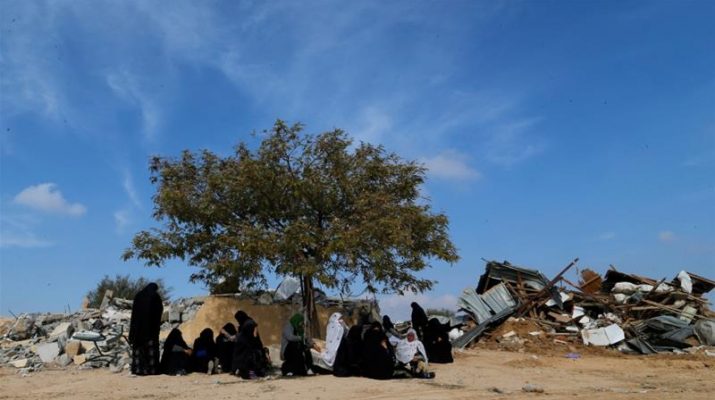Today’s commemoration of Land Day is an emblematic reminder of the countless human rights violations that have characterized half a century of Palestinian land confiscation and dispossession.
During the first land day in 1976 Palestinian citizens of Israel protested against the Israeli government’s expropriation of 2,000 hectares of land surrounding Palestinian villages in the Galilee. Six Palestinians were killed and more than 100 were injured when Israeli forces crushed the protests.
Every year since, Palestinian communities in Israel and the Occupied Palestinian Territories (OPT) have gathered on March 30, to commemorate these events to highlight Israel’s ongoing seizure of Palestinian land, and to reaffirm their connection to the land.
This year’s Land Day will be marked with a march between Deir Hana and Sakhnin in northern Israel, as well as demonstrations and events across central Israel and the Negev/Naqab region, and in the occupied Wes Bank and Gaza Strip. The protests are often met with brutal and excessive use of force by Israel.
In Umm al-Hiran, one of the unrecognised Bedouin villages in the Negev/Naqab region, protesters are planning to plant trees and rehabilitate some of the structures demolished earlier this year by the Israeli authorities, after residents lost a long legal battle against eviction orders to enable government construction of a new community for Jewish residents.
In the occupied West Bank and Gaza Strip concerts, marches and olive tree planting events are planned in acts of protest against Israel’s continuous occupation and aggressive land-grab policies. The first few months of 2017 alone have seen an alarming surge in illegal settlement activity and home demolitions in the occupied West Bank.
Since January the Israeli government, emboldened by President Donald Trump’s inauguration, has authorised the construction of more than 6219 illegal settlement homes in the occupied West Bank, including 719 in East Jerusalem. These announcements not only mark a shift from the Israeli government’s more cautious approach under the Obama administration but also fly in the face of UN Security Council resolution 2334 passed in December last year, which calls on Israel to immediately cease all settlement activities in the OPT.
In recent weeks a number of Israeli Knesset members have proposed a law to annex the West Bank settlement of Ma’ale Adumim to Jerusalem, along with other settlements in close proximity to the city.
Although the bill has been temporarilyblocked by Prime Minister Netanyahu, the proposal is alarming. In addition to flagrantly violating international law, such a move would have potentially catastrophic consequences. Ma’ale Adumim and Jerusalem are connected by the contentious El area a 12sq km piece of land that provides a vital passage between the northern and southern West Bank. Should Israeli construction take place on this land, a continuous Israeli settler presence will be established from occupied East Jerusalem to the Jordan Valley, effectively cutting the West Bank in half and severing East Jerusalem from the remainder of the occupied West Bank.

